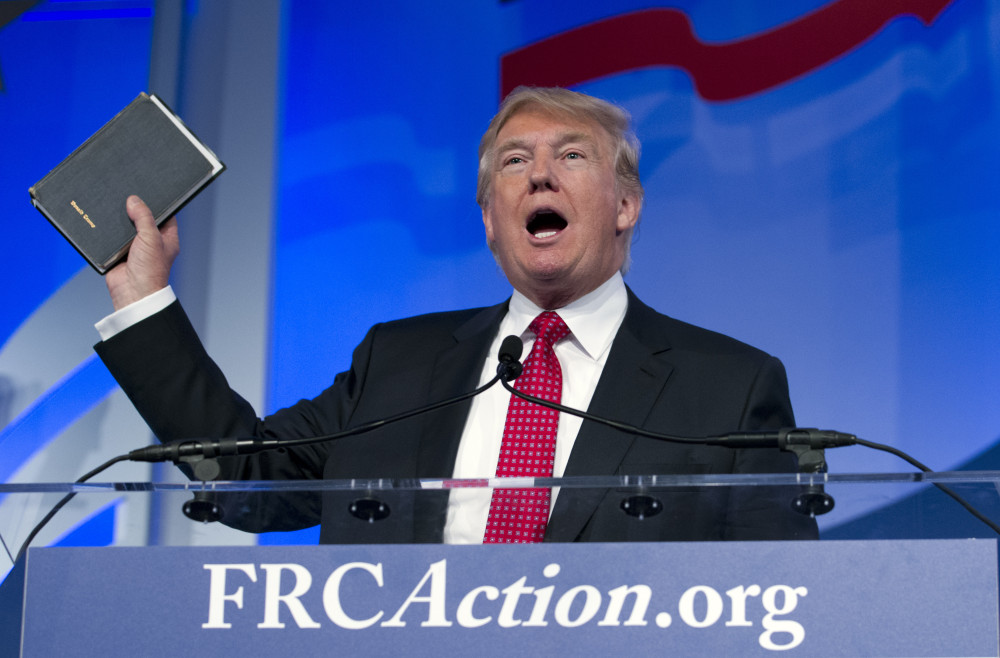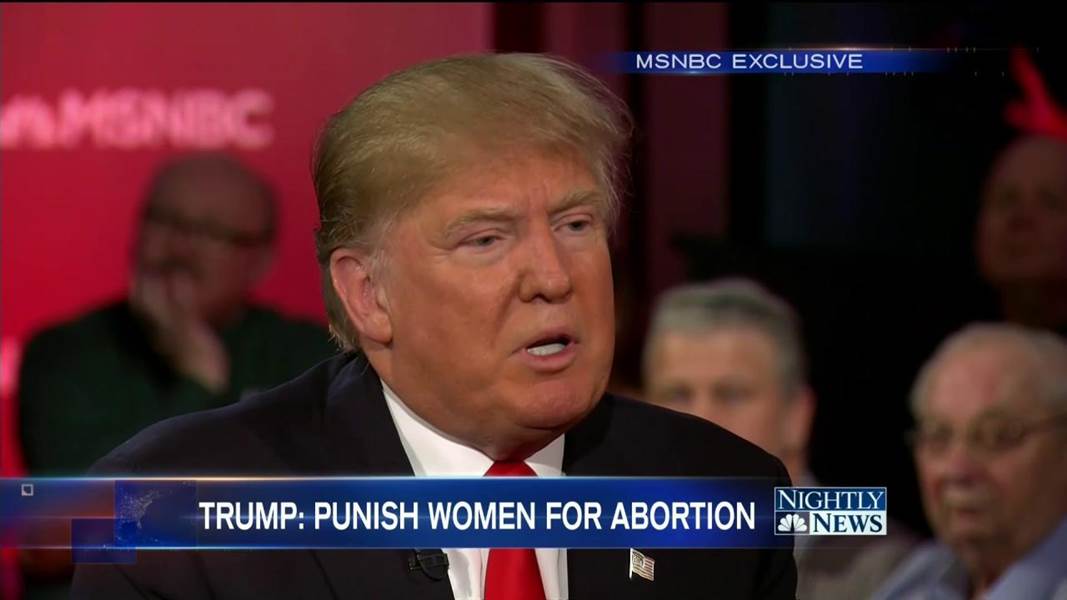Donald Trump stoked outrage yesterday when he said that if he were to be successful in making abortion illegal there would have to be “some form of punishment” for women obtain the procedure.
A campaign spokesman then said that it would be up to the states to determine what form of punishment women should receive and Trump’s son, Donald Trump Jr., vigorously defended his father’s comments.
As the outcry continued, Trump’s campaign released a statement from the candidate saying that he only believes the abortion provider, and not the woman, should face punishment for abortion, since the woman is “a victim in the case.” Absurdly, Trump said in the statement that “my position has not changed,” even though it was a reversal of what he had said just hours earlier.
It wasn’t the first time Trump has changed his views on abortion rights: While he said in the 1990s that he was “pro-choice in every respect,” he now says he changed his mind after a friend who was considering an abortion ended up having a “total superstar” kid.
While Trump was offering his vague, evasive and since-contradicted answer on whether he thinks women should face punishment, he also acknowledged that if abortion is banned women would to “go to a position like they had where people will perhaps go to illegal places.”
Just as women in parts of the U.S. today are already being punished for having abortions, some women are also going “to illegal places,” as Trump put it, as a result of laws curtailing access to abortion care. Rather than decrease the abortion rate, time and time again anti-abortion laws simply just make women turn to dangerous means.
As Mother Jones notes, unsafe abortions have been on the rise in Texas after state lawmakers passed a number of laws restricting access:
A new study quantifies some of those fears: At least 100,000 Texas women—and as many as 240,000—between the ages of 18 and 49 have attempted to self-induce abortions, according to a report released today by the Texas Policy Evaluation Project (TxPEP). The study also found that it is possible that the rate of women attempting to self-induce abortions is rising in Texas as a result of the state’s additional restrictions on abortion care. The report points to previous studies that have explored the correlation between a rise in abortion restrictions and the prevalence of self-induced abortions. A 2008 national study found that about 2 percent of women reported that they tried to terminate pregnancies on their own. In 2012, a year after Texas passed several new abortion restrictions, a study of Texas women seeking care at an abortion clinic found that about 7 percent reported attempting to end their pregnancies without medical assistance before seeking clinic care.
…
The study identifies two populations where histories of self-induced abortion were most prevalent: Latina women living in a county that borders Mexico—a more rural area of the state that has seen several clinic closures—and women who reported difficulty gaining access to reproductive health care in the past.
The study also determined that the two broad categories of methods used by women to end their pregnancies were home remedies such as herbs, teas, vitamins, or medications—primarily misoprostol—obtained in Mexico without a prescription by women traveling there.
Indeed, women in Texas have sought drugs in Mexico that can cause miscarriages and which, according to one expert, “can cause serious bleeding or a partial birth abortion” if taken without medical guidance.
Latin America, where several countries have enacted anti-abortion laws in recent years, is experiencing a high rate of unsafe abortions:
Latin America and the Caribbean have the highest regional rate of unsafe abortions (pdf) per capita in the world at 31 per 1,000 women, aged 15 to 44. According to the World Health Organisation (WHO), there are about 4.2m unsafe abortions each year in Latin America and the Caribbean.
Abortion is a major cause of maternal mortality in Latin America. The WHO, which calls unsafe abortion a “persistent, preventable pandemic”, estimates that in 2008, 12% of all maternal deaths in Latin America and the Caribbean were caused by abortions. Many other women die as a result of complications stemming from unsafe abortions such as septic shock or perforation of internal organs.
If Donald Trump gets his way, women will still be punished for his anti-abortion views, no matter what he now says.






.jpg)

